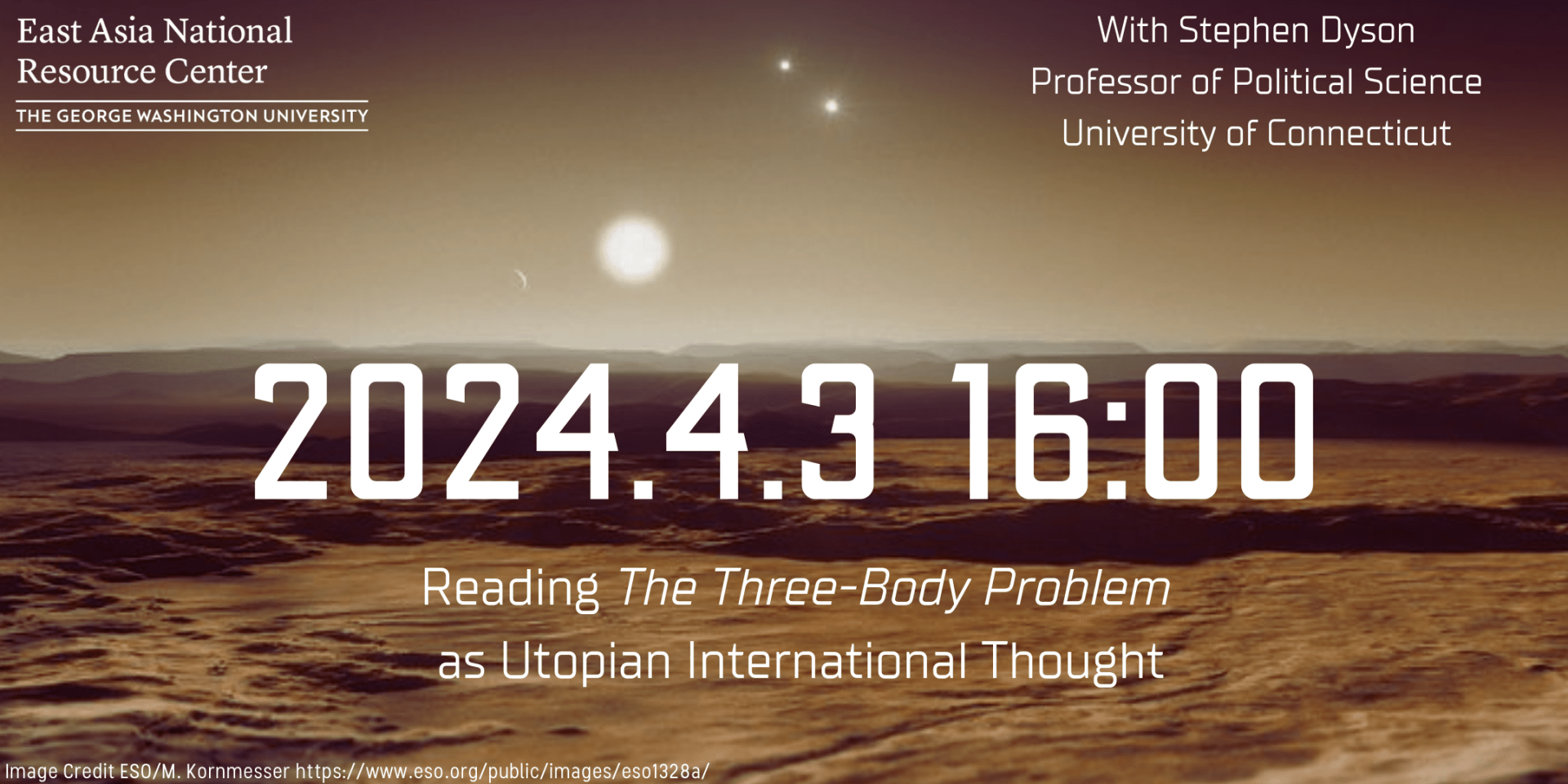
Wednesday, April 3rd, 2024 · 4 – 5:30 pm EST
Virtual talk on Zoom
About this event:
Liu Cixin’s Three-Body trilogy can be profitably interpreted from the standpoint of international relations theory, in particular the offensive realism that is prominent in contemporary IR practice, the logic of which parallels several key developments in the story. Such, indeed, was my initial impulse upon being introduced to Liu’s work (Dyson, 2019). In this talk I would like to supplement and in some degree challenge that original interpretation with a counter-reading, one motivated not by the security focus of international relations theory but by the humanistic focus of science-fiction studies – the academic discipline directed towards the interpretation of science fiction texts.
About the speaker:
Stephen Benedict Dyson is a Professor of Political Science and Associate Director of the Humanities Institute at the University of Connecticut. He is the author of four monographs and numerous journal articles, including Images of International Politics in Chinese Science Fiction (New Political Science, 2019). He is the co-host of the UConn Popcast.
Registration
The event is open to the public. Guests who register for the event will receive details for joining the Zoom meeting.
The Sigur Center for Asian Studies and GW Institute for Korean Studies (GWIKS) together received the highly regarded designation of National Resource Center (NRC) for East Asian Studies. The designation — the first time these two centers have received NRC status — enhances the institutes’ ability to engage the broader public community, including students, K-12 educators, HBCUs, policymakers, military veterans, journalists and the general public on regional and global issues of importance. With this award, GW joins a handful of other world-leading universities with this honor, including Stanford, Columbia, and the University of Chicago. Additionally, the Sigur Center and GWIKS have been awarded funding for Foreign Language and Area Studies (FLAS) Fellowships which support undergraduate and graduate students studying modern foreign languages and related area or international studies.


